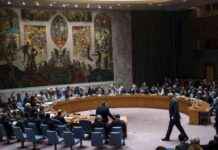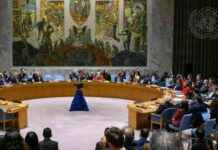Oil Prices: Brent Crude Falls to $72.65 USD, Limited Contribution from National Oil Sector
The price of a barrel of Brent, a global benchmark for oil, dropped to $72.65 USD on December 19, 2024, marking a weekly decrease of 1.53%, as reported in the weekly economic update released by the Central Bank of Congo (BCC). This decline is attributed to signs of economic growth slowdown in the United States, impacting global demand.
Brent, a light crude oil primarily extracted from the North Sea, serves as a reference point in international markets. Despite being an oil-producing country, the Democratic Republic of Congo does not exploit Brent. Its oil production mainly relies on the company Perenco, with an estimated annual output of 8.4 million barrels in 2022.
Limited Contribution from National Oil Sector
Despite having oil resources, the revenue contribution from the oil sector remains limited in the DRC. The tax revenues from oil producers collected by the General Directorate of Taxes (DGI) and the General Directorate of Administrative, Judicial, Domain and Participation Revenues (DGRAD) amounted to 299.80 billion CDF in 2023, indicating a minimal contribution to the national budget.
Dependence on Non-Oil Revenue Sources
On the other hand, non-oil current revenues have experienced steady growth, showcasing an increased reliance on other tax sources to support the economy. This trend highlights the structural challenges that the Congolese oil sector must address to maximize its economic potential.
Future Prospects and Challenges
As the oil prices fluctuate and the global economic landscape evolves, the DRC’s oil sector faces both opportunities and obstacles. Maximizing the sector’s economic impact will require strategic planning, investment, and effective governance to ensure sustainable growth and revenue generation for the country’s development.
In a rapidly changing economic environment, diversifying revenue sources and enhancing the efficiency of resource utilization will be crucial for the DRC to navigate the challenges ahead and unlock its full economic potential. By addressing the structural issues in the oil sector and promoting transparency and accountability, the country can create a more sustainable and resilient economy for the future.

















![Rwanda RDC Conflict: Security Council Must Take Sides [Opinion Piece] rwanda-rdc-conflict-security-council-must-take-sides-opinion-piece](https://congotvnews.com/wp-content/uploads/2025/01/rwanda-rdc-conflict-security-council-must-take-sides-opinion-piece-324x160.jpg)